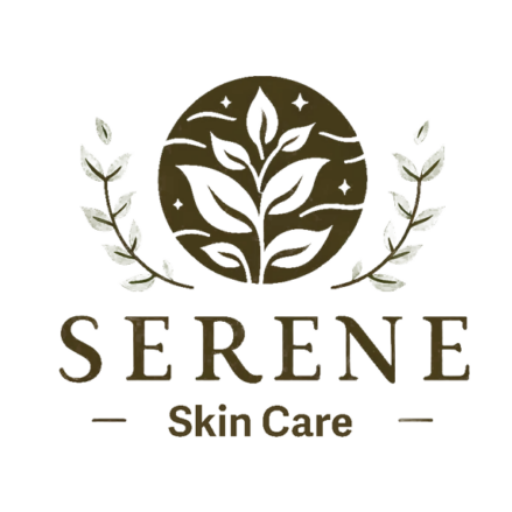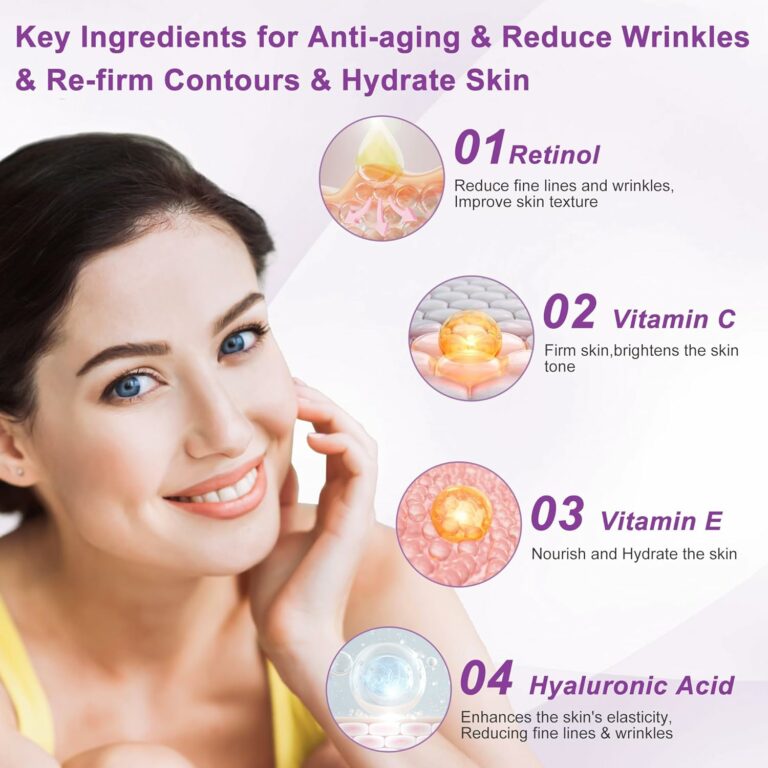So you’re looking to revamp your skin care routine with vegan and cruelty-free products? Look no further! In “The Ultimate Guide to Vegan Skin Care,” we’ve got you covered from head to toe. Whether you’re a committed vegan or simply looking to make more conscious choices, this comprehensive guide will take you through the world of vegan skin care options. From cleansers to moisturizers, we’ll explore the best brands and ingredients to ensure your skin stays healthy and radiant, all while staying true to your values. Get ready to pamper yourself guilt-free and achieve that natural, glowing complexion you’ve always dreamed of.

Understanding Vegan Skin Care
What is vegan skin care?
Vegan skin care refers to products that are formulated without any animal-derived ingredients or by-products. This means that vegan skin care products do not contain ingredients like honey, beeswax, lanolin, or collagen, which are commonly found in traditional skin care products. Instead, vegan skin care relies on plant-based ingredients and natural alternatives to provide nourishment and hydration to the skin.
Why choose vegan skin care?
There are several reasons why you may choose to incorporate vegan skin care into your routine. Firstly, vegan skin care is more ethical, as it does not involve any harm or exploitation of animals. By opting for vegan products, you can support companies that are committed to cruelty-free practices and contribute to a more compassionate beauty industry. Additionally, vegan skin care products are often formulated with natural and botanical ingredients that are rich in vitamins, antioxidants, and minerals, which can provide numerous benefits for your skin. Vegan skin care is also suitable for individuals with sensitive skin, as it avoids common allergens found in animal-derived ingredients.
The difference between vegan and cruelty-free
While the terms “vegan” and “cruelty-free” are often used interchangeably, they have distinct meanings. Vegan skin care refers to products that do not contain any animal-derived ingredients, as mentioned earlier. On the other hand, cruelty-free products are those that are not tested on animals during the manufacturing process. It is important to note that a product can be vegan but not cruelty-free if it contains synthetic ingredients that have been tested on animals. Conversely, a product can be cruelty-free but not vegan if it contains animal-derived ingredients. When choosing vegan skin care, it is ideal to look for products that are both vegan and cruelty-free to ensure you are making a compassionate choice.
How to identify vegan skincare products
Identifying vegan skin care products can sometimes be challenging, as not all products are labeled clearly. However, there are a few key indicators that can help you identify whether a product is vegan or not. Firstly, check the ingredient list for any animal-derived ingredients such as beeswax, lanolin, or carmine. If you are unsure about a specific ingredient, you can do a quick online search to determine its source. You can also look for vegan certifications on the product packaging, such as the Certified Vegan logo or the Leaping Bunny logo, which indicates that the product is both vegan and cruelty-free. Additionally, many vegan brands proudly highlight their cruelty-free and vegan status on their websites and social media platforms, making it easier for consumers to make informed choices.
Essential Ingredients for Vegan Skin Care
Plant-based oils and butters
Plant-based oils and butters are essential ingredients in vegan skin care, as they provide hydration, nourishment, and replenishment to the skin. Ingredients like jojoba oil, almond oil, and shea butter are rich in vitamins and fatty acids that help restore the skin’s natural moisture barrier, leaving it soft and supple. These oils and butters are also lightweight and easily absorbed, making them suitable for all skin types.
Natural botanical extracts
Natural botanical extracts, such as aloe vera, green tea, and chamomile, are commonly used in vegan skin care products due to their soothing and healing properties. These extracts provide antioxidants, reduce inflammation, and promote skin rejuvenation. Additionally, botanical extracts can help balance oil production, minimize the appearance of pores, and even out skin tone, making them beneficial for individuals with acne-prone or sensitive skin.
Hydrating ingredients for vegan skincare
Hydration is essential for healthy skin, and vegan skin care products often incorporate hydrating ingredients to provide moisture and prevent dryness. Hyaluronic acid, vegetable glycerin, and seaweed extracts are popular hydrating ingredients commonly found in vegan skin care products. These ingredients attract and retain moisture, plumping the skin and improving elasticity, resulting in a more youthful and radiant complexion.
Antioxidants for vegan skincare
Antioxidants play a crucial role in vegan skin care as they protect the skin from free radical damage caused by environmental factors such as pollution and UV radiation. Antioxidant-rich ingredients like vitamin C, vitamin E, and green tea extract help neutralize free radicals, promote collagen production, and reduce signs of aging such as wrinkles and fine lines. Incorporating antioxidants into your vegan skin care routine can help maintain a healthy and youthful complexion.
Essential oils for vegan skincare
Essential oils not only provide aromatic benefits but also offer numerous skin care benefits. Tea tree oil, lavender oil, and rosehip oil are commonly used in vegan skin care for their antibacterial, anti-inflammatory, and rejuvenating properties. These oils can help calm irritated skin, reduce redness, and promote a clear and balanced complexion. It is important to note that essential oils should be used in moderation and diluted properly before applying to the skin to avoid any adverse reactions.
Creating a Vegan Skin Care Routine
Determining your skin type
Before creating a vegan skin care routine, it is essential to determine your skin type. The four common skin types are normal, dry, oily, and combination. Normal skin is well-balanced and requires a basic skincare routine to maintain its health. Dry skin needs extra hydration and nourishment to combat dryness and flakiness. Oily skin requires products that regulate sebum production and prevent clogged pores. Combination skin requires a combination of products to address both oily and dry areas. By understanding your skin type, you can choose appropriate products that cater to your specific needs.
Cleansing techniques for vegan skin care
Cleansing is a crucial step in any skin care routine, including vegan skin care. To cleanse your face effectively, start by using a gentle vegan cleanser that suits your skin type. Massage the cleanser onto damp skin in a circular motion, focusing on areas prone to dirt and congestion. Rinse thoroughly with lukewarm water and pat dry with a clean towel. Avoid using hot water, as it can strip the skin of its natural oils. It is recommended to cleanse your face twice a day, in the morning and evening, to remove dirt, oil, and makeup that can accumulate throughout the day.
Choosing a vegan moisturizer
Moisturizing is a crucial step in any skin care routine, as it helps replenish hydration and lock in moisture. When choosing a vegan moisturizer, consider your skin type and specific concerns. For dry skin, opt for a rich and nourishing moisturizer that contains hydrating ingredients like hyaluronic acid or shea butter. If you have oily or acne-prone skin, look for lightweight and oil-free moisturizers that provide hydration without clogging pores. Combination skin may benefit from using different moisturizers on different areas of the face to address specific needs. Apply moisturizer to clean skin, massaging it gently in upward motions until fully absorbed.
Vegan exfoliation methods
Exfoliation is an essential step to remove dead skin cells, unclog pores, and improve skin texture. In vegan skin care, physical and chemical exfoliation methods can be used. Physical exfoliation involves using a scrub or a brush to manually slough off dead skin cells. Look for vegan scrubs that contain natural exfoliants like sugar or ground walnut shells. Chemical exfoliation involves using alpha hydroxy acids (AHAs) or beta hydroxy acids (BHAs) to gently dissolve dead skin cells. Vegan-friendly chemical exfoliators usually contain plant-based acids like glycolic acid or salicylic acid. It is important to follow the instructions provided with the exfoliator and avoid over-exfoliating, as it can cause irritation and sensitivity.
Special considerations for sensitive skin
Individuals with sensitive skin need to be extra cautious when choosing vegan skin care products. Look for gentle and soothing ingredients like chamomile, aloe vera, or calendula that can help calm and strengthen the skin barrier. Avoid products that contain potential irritants such as fragrances, harsh detergents, or alcohol. Patch test products before applying them to your entire face to ensure there are no adverse reactions. It is also advisable to consult with a dermatologist or skincare professional who can recommend suitable products and provide personalized advice to address your specific concerns.
Morning and evening vegan skin care routines
Establishing a consistent morning and evening vegan skin care routine is crucial for maintaining healthy and glowing skin. In the morning, start by cleansing your face with a gentle vegan cleanser to remove any impurities and oils accumulated overnight. Follow with a vegan toner to balance the skin’s pH levels and prepare it for the following skincare steps. Apply a hydrating vegan serum or lightweight moisturizer to provide moisture and protection throughout the day. Finish off with a broad-spectrum vegan sunscreen to protect your skin from harmful UV rays. In the evening, repeat the cleansing step to remove makeup and impurities from the day. Follow with any treatment products, such as serums or spot treatments, and finish with a nourishing vegan night cream to replenish the skin while you sleep.
Vegan Skin Care for Specific Skin Concerns
Acne-prone skin
Individuals with acne-prone skin can benefit from vegan skin care products that are specifically formulated to address this concern. Look for products that contain acne-fighting ingredients like salicylic acid, tea tree oil, or witch hazel. These ingredients help regulate oil production, unclog pores, and reduce inflammation. Avoid products that are too heavy or comedogenic, as they can potentially worsen breakouts. It is important to maintain a consistent and gentle skincare routine, avoid touching or picking at pimples, and consult with a dermatologist if acne persists or worsens.
Dry and dehydrated skin
Dry and dehydrated skin require extra hydration and nourishment to achieve a healthy and glowing complexion. Look for vegan moisturizers and serums that contain hyaluronic acid, glycerin, or ceramides to replenish and lock in moisture. Rich plant-based oils like argan oil or avocado oil can also provide intense hydration for dry skin. Consider incorporating a hydrating face mask or facial oil into your routine once or twice a week to provide an extra boost of hydration and nourishment.
Oily and combination skin
Oily and combination skin types require products that regulate oil production and prevent clogged pores. Look for lightweight and oil-free moisturizers that contain ingredients like niacinamide, witch hazel, or green tea extract to balance oil production and minimize shine. Gentle exfoliation with BHA exfoliants can help remove excess oil and unclog pores. Use oil-absorbing blotting papers throughout the day to control shine without stripping the skin of its natural oils.
Aging skin
Aging skin can benefit from vegan skin care products that focus on anti-aging ingredients and promote collagen production. Look for products that contain antioxidants like vitamin C, retinol, or peptides to reduce the appearance of wrinkles, fine lines, and age spots. Hydrating ingredients like hyaluronic acid and plant-based oils can help plump and firm the skin. It is essential to use a broad-spectrum sunscreen daily to protect the skin from further damage caused by UV radiation.
Hyperpigmentation and dark spots
Hyperpigmentation and dark spots can be effectively treated with vegan skin care products that target uneven skin tone. Look for products that contain ingredients like vitamin C, licorice extract, or kojic acid, as they can help brighten and lighten dark spots. Exfoliating acids like glycolic acid or lactic acid can also promote cell turnover and reduce the appearance of hyperpigmentation over time. Consistency and daily use of these products, in combination with sun protection, can help fade existing dark spots and prevent new ones from forming.
Sensitive and reactive skin
Sensitive and reactive skin requires gentle and soothing vegan skin care products to minimize irritation and redness. Look for products that are fragrance-free, alcohol-free, and formulated with minimal ingredients. Calming ingredients like chamomile, aloe vera, or oat extract can help soothe sensitive skin and restore its moisture barrier. Avoid using harsh physical exfoliants or strong active ingredients, as they can potentially aggravate sensitive skin. Patch testing new products and consulting with a dermatologist are important steps for individuals with sensitive skin to ensure the products are well-tolerated and suitable for their specific needs.
Understanding Vegan Makeup and Cosmetics
Vegan makeup brands and certifications
The growing demand for vegan beauty products has led to the emergence of many vegan makeup brands. These brands are committed to formulating cosmetics that are free from animal-derived ingredients and are not tested on animals. Look for vegan certifications such as the Certified Vegan logo, the Vegan Society logo, or the PETA logo, which indicate that the product is vegan and cruelty-free. Many vegan makeup brands also proudly highlight their status on their packaging or websites, making it easier for consumers to identify and choose their products.
Choosing vegan foundations and concealers
When choosing vegan foundations and concealers, consider your skin type and desired coverage. Look for formulas that are lightweight, breathable, and suitable for your skin type. Vegan foundations and concealers come in various finishes, including matte, dewy, or natural, so you can choose the one that suits your preferences and desired look. It is also important to consider the shade range offered by the brand to ensure you find a suitable match for your skin tone.
Vegan options for blush, bronzer, and highlighter
Vegan options for blush, bronzer, and highlighter are readily available in the market. These products typically use plant-based ingredients like fruit extracts, mineral pigments, or natural mica to achieve the desired colors and effects. Look for vegan blushes, bronzers, and highlighters that are free from carmine, a red pigment derived from insects, and opt for formulations that suit your skin type and desired finish. Vegan makeup brands often offer a wide range of shades and finishes to accommodate various skin tones and preferences.
Vegan lipsticks and lip products
Vegan lipsticks and lip products are a popular choice for individuals seeking cruelty-free and animal-friendly alternatives. These lip products are formulated without ingredients like beeswax, lanolin, or carmine, which are commonly found in traditional lip products. Vegan lipsticks often use plant-based waxes like candelilla wax or carnauba wax, along with nourishing oils and plant extracts, to provide hydration and long-lasting color. Look for vibrant shades, comfortable formulas, and packaging made from sustainable materials when choosing vegan lip products.
Vegan eye makeup and mascaras
Vegan eye makeup and mascaras are widely available and offer various options to enhance and define your eye look. Vegan eyeshadows are typically formulated with mineral pigments, plant-based oils, and natural extracts. Look for versatile eyeshadow palettes that offer a range of shades and finishes for different eye looks. Vegan mascaras use plant-based waxes and natural fibers to provide length, volume, and definition to your lashes. Opt for mascaras that are smudge-proof, long-lasting, and suitable for your desired lash effect.
Vegan nail polish options
Vegan nail polishes have become increasingly popular as more brands are formulating nail products without animal-derived ingredients. These nail polishes are free from common nail polish ingredients like guanine, carmine, or shellac, which are derived from animals. Vegan nail polishes often use plant-based ingredients and mineral pigments to achieve vibrant colors and long-lasting wear. Look for vegan nail polishes that are cruelty-free, non-toxic, and free from harmful chemicals like formaldehyde, toluene, and dibutyl phthalate.
DIY Vegan Skin Care Recipes
Basic vegan facial cleanser
To create a basic vegan facial cleanser, you will need:
- 1 tablespoon of castile soap
- 2 tablespoons of distilled water
- 1 teaspoon of vegetable glycerin
- 5 drops of essential oil (optional)
Mix all the ingredients together in a clean bottle and shake well to combine. Use the cleanser by applying a small amount to damp skin, massaging it gently in circular motions, and rinsing thoroughly with lukewarm water. This gentle cleanser effectively removes dirt and impurities without stripping the skin of its natural oils.
Homemade vegan facial masks
For a homemade vegan facial mask, you can try the following recipe:
- 1 ripe avocado
- 1 tablespoon of coconut oil
- 1 tablespoon of oat flour
Mash the avocado in a bowl until smooth. Add the coconut oil and oat flour, and mix well to form a paste. Apply the mask to clean, dry skin and leave it on for 15-20 minutes. Rinse with warm water and follow with your regular skincare routine. This mask is nourishing, hydrating, and suitable for all skin types.
DIY vegan body scrubs
To create a DIY vegan body scrub, you will need:
- 1 cup of sugar or salt
- ½ cup of coconut oil
- 10-15 drops of essential oil (optional)
Mix the sugar or salt with the coconut oil in a bowl until well combined. Add the essential oil of your choice for a pleasant scent. Gently massage the scrub onto damp skin in circular motions, focusing on rough areas like elbows, knees, and feet. Rinse thoroughly with warm water. This homemade body scrub exfoliates, moisturizes, and leaves your skin feeling smooth and rejuvenated.
Natural vegan remedies for common skin issues
For common skin issues like acne or dry skin, there are natural vegan remedies that you can try. For acne, tea tree oil can be diluted with a carrier oil like jojoba oil and applied to affected areas to reduce inflammation and kill bacteria. For dry skin, a mixture of aloe vera gel and a few drops of rosehip oil can provide soothing hydration and promote skin healing. These natural remedies can complement your vegan skin care routine and provide additional benefits to address specific skin concerns.
DIY vegan lip balm and lip scrubs
To make a DIY vegan lip balm, you will need:
- 1 tablespoon of coconut oil
- 1 tablespoon of candelilla wax
- 1 teaspoon of shea butter
- 10-15 drops of essential oil (optional)
In a double boiler, melt the coconut oil, candelilla wax, and shea butter until fully combined. Remove from heat and add your choice of essential oil for a pleasant scent. Pour the mixture into small lip balm containers and let it cool until solid. This homemade vegan lip balm provides nourishment and hydration to dry and chapped lips.
For a DIY vegan lip scrub, you will need:
- 1 tablespoon of coconut oil
- 2 tablespoons of brown sugar
- 1 teaspoon of vanilla extract
Mix all the ingredients together in a small bowl until well combined. Gently massage the scrub onto your lips in circular motions to exfoliate dead skin cells. Rinse with warm water and follow with your favorite vegan lip balm. This homemade lip scrub helps remove dry and flaky skin, leaving your lips smooth and soft.
Vegan Skin Care for Men
Simple vegan skincare routines for men
Men can benefit from adopting a simple vegan skincare routine that focuses on basic steps and essential products. A basic vegan skincare routine for men typically includes cleansing, moisturizing, and sun protection. Start by cleansing the face with a gentle vegan cleanser to remove dirt and impurities. Follow with a lightweight vegan moisturizer to hydrate the skin and provide moisture. Finish off with a broad-spectrum sunscreen to protect the skin from the harmful effects of the sun. It is important to choose products that are formulated for men’s specific skin concerns, such as oil control or soothing for post-shave irritation.
Vegan shaving products and techniques
Vegan shaving products like shaving creams, gels, and aftershaves are widely available and offer effective alternatives to traditional shaving products. Look for vegan shaving products that are designed to provide a smooth and comfortable shave without causing irritation or razor burn. Choose products that are formulated with natural and soothing ingredients like aloe vera, chamomile, or tea tree oil. Adopting proper shaving techniques, such as using a sharp blade, washing the face with warm water before shaving, and applying a moisturizing vegan aftershave, can help reduce irritation and achieve a close and clean shave.
Keeping beards and mustaches clean and healthy
For individuals with beards and mustaches, it is essential to keep the facial hair clean and healthy. Regularly washing the beard and mustache with a gentle vegan cleanser or beard shampoo helps remove dirt, oil, and buildup. Applying a vegan beard oil or balm can provide hydration, nourishment, and manageability to the facial hair. Additionally, using a beard comb or brush can help distribute natural oils, reduce tangles, and promote healthy growth. Trimming the beard and mustache regularly can also help maintain a neat and groomed appearance.
Vegan skincare for after-sun care
After-sun care is important to soothe and nourish the skin after sun exposure. Look for vegan after-sun products that contain ingredients like aloe vera, cucumber extract, or calendula to calm and hydrate the skin. Apply a generous amount of after-sun lotion or gel to the affected areas and massage it gently until fully absorbed. This helps replenish lost moisture, reduce redness, and minimize the potential damage caused by the sun. It is important to continue using sunscreen daily to prevent further sun damage and maintain skin health.
Transitioning to a Vegan Skin Care Routine
Replacing non-vegan skincare products
Transitioning to a vegan skin care routine involves replacing non-vegan skincare products with vegan alternatives. Start by assessing your current skincare products and identifying any animal-derived ingredients. Refer to the ingredient list or do some quick online research to determine whether the products are vegan or non-vegan. Replace non-vegan products with vegan alternatives that suit your skin type and concerns. Look for vegan certification labels or check the brand’s website for information on their vegan and cruelty-free status. It may take some time and experimentation to find suitable replacements, but the transition will ultimately lead to a more ethical and compassionate skincare routine.
Identifying hidden animal-derived ingredients
Identifying hidden animal-derived ingredients can sometimes be challenging, as they may go by different names or be disguised as other substances. It is important to familiarize yourself with common animal-derived ingredients, such as beeswax, lanolin, collagen, or carmine, and their alternative names. Some ingredients derived from animals may be labeled as “natural flavoring” or “natural coloring” on product packaging. Doing some research and referring to reliable vegan resources can help you identify hidden animal-derived ingredients and make informed choices when selecting vegan skincare products.
Vegan alternatives for common skincare products
There are vegan alternatives available for common skincare products that traditionally contain animal-derived ingredients. For example, instead of using beeswax-based lip balms, opt for vegan lip balms made with plant-based waxes like candelilla wax. Instead of lanolin-based moisturizers, choose vegan moisturizers formulated with plant-based oils and butters. Many vegan brands offer a wide range of alternatives, including cleansers, toners, serums, masks, and more, making it easier to create a complete vegan skincare routine.
Dealing with potential detox effects
When transitioning to a vegan skincare routine, it is common to experience potential detox effects as the skin adjusts to the new products. These detox effects can include temporary breakouts, increased oiliness, or dryness. This is often a sign that the skin is purging toxins and adjusting to the new ingredients. It is important to be patient and allow your skin time to adapt. Stick to your vegan skincare routine consistently and give it at least a few weeks to see improvements. If the detox effects persist or worsen, consider consulting with a dermatologist or skincare professional for additional guidance.
Seeking professional guidance for transitioning
Seeking professional guidance can be beneficial when transitioning to a vegan skincare routine, especially if you have specific skin concerns or are unsure about suitable product choices. A dermatologist or skincare professional can assess your skin type, concerns, and specific needs, and recommend suitable vegan skincare products and routines. They can provide personalized advice and guidance to ensure a smooth and successful transition. Professional guidance can also be helpful if you have underlying skin conditions or persistent skin issues that require specialized care.
Vegan Skin Care on a Budget
Finding affordable vegan skincare brands
Finding affordable vegan skincare brands is possible with the increasing availability of vegan options in the market. Many vegan skincare brands offer products at different price points to cater to various budgets. Look for brands that offer affordable skincare essentials like cleansers, moisturizers, and serums without compromising on quality. It is important to read reviews, check ingredient lists, and research the brand’s commitment to vegan and cruelty-free practices to ensure you are making an informed choice. Additionally, some vegan skincare brands offer trial sizes or sample programs, allowing you to try their products before investing in full-size versions.
Budget-friendly DIY vegan skincare recipes
DIY vegan skincare recipes can be a budget-friendly alternative to store-bought products. Basic ingredients like coconut oil, sugar, oats, or essential oils can be used to create simple and effective skincare recipes. Homemade vegan face masks, scrubs, and cleansers can be made with ingredients readily available in your pantry or kitchen, saving you money on expensive pre-made products. However, it is important to ensure that the DIY recipes are formulated correctly, properly stored, and suitable for your specific skin type and concerns.
Prioritizing key vegan skincare products
When working with a budget, it is essential to prioritize key vegan skincare products that are crucial for maintaining skin health. A cleanser, moisturizer, and sunscreen are the essential products to include in any vegan skincare routine. These products help cleanse, hydrate, and protect the skin from environmental damage. Depending on your specific concerns, you may also prioritize additional products like serums, masks, or exfoliants. By focusing on the key products that suit your needs, you can create an effective and budget-friendly vegan skincare routine.
Making the most out of multi-purpose vegan products
Choosing multi-purpose vegan products can help maximize your skincare routine while minimizing costs. Look for products that serve multiple purposes, such as a moisturizer with SPF, a tinted moisturizer that provides coverage and sun protection, or a serum that targets multiple skin concerns. These multi-purpose products allow you to streamline your skincare routine and reduce the number of products you need to purchase. However, it is important to ensure that the multi-purpose products are formulated for your specific skin type and concerns to achieve optimal results.
Conclusion
Embracing vegan skincare is not only a compassionate choice but also a beneficial one for your skin. Vegan skin care products offer a wealth of natural and plant-based ingredients that provide nourishment, hydration, and protection to your skin. By following a vegan skincare routine, you can support ethical brands and contribute to a more sustainable beauty industry. Whether you are dealing with specific skin concerns or simply looking for a more ethical approach to your beauty routine, vegan skin care offers a wide range of options to suit your needs. Take care of yourself and the planet by choosing vegan skincare products that align with your values and promote the health and well-being of your skin.







